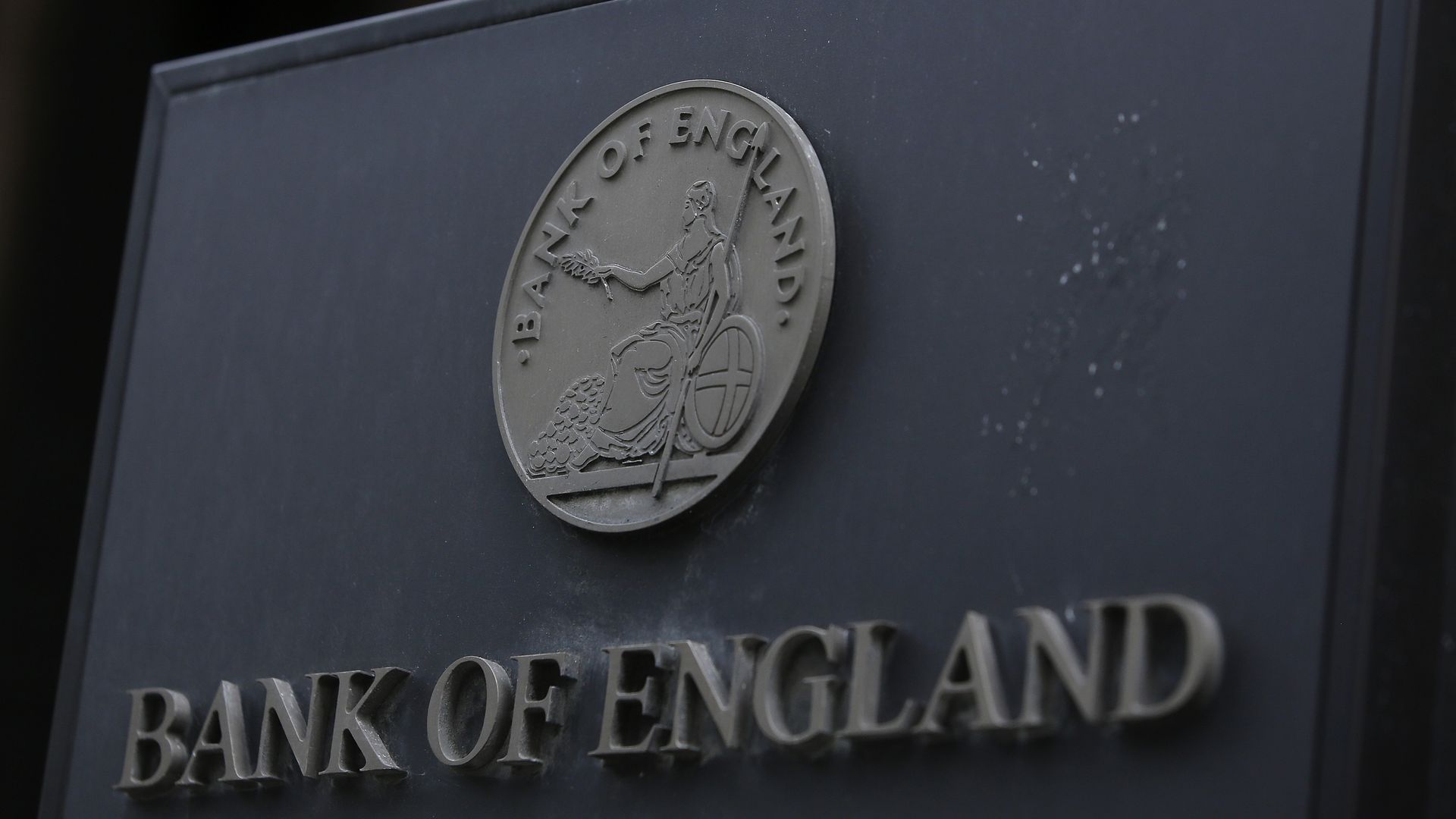Bank of England's interest rates intrigue
Add Axios as your preferred source to
see more of our stories on Google.

Photo: Simon Dawson/Getty Images
The Bank of England might finally, really be the first major central bank to raise interest rates from the pandemic era's rock bottom levels.
Flashback: The BoE was widely expected to pull the trigger at its November meeting. It didn’t.
Why it matters: The world will be watching. If rate liftoff in a major economy goes smoothly — or has hiccups — it could send useful signals to other central bankers.
What’s new: Two key data points out this week.
- Jobs grew after the U.K.’s furlough scheme — or stimulus program — ended on Sept. 30. Unemployment’s now down to 4.3% — even lower than economists expected.
- On top of that, inflation reached 4.2% in October — a 10-year high — jumping from 3.1% in September.
“It would be a bigger surprise if at the next meeting they don’t raise rates. They pretty well telegraphed it,” Chris Gaffney, president of World Markets at TIAA Bank, tells Axios.
- The BoE members that voted earlier this month to keep the key rate steady at 0.1% wanted to ensure that employment moved in the right direction after the end of the furlough program, he adds.
The bottom line: Naturally, Bank of England governor Andrew Bailey isn’t committing to any course in advance. But he did acknowledge the labor market is “considerably tighter,” and said Tuesday’s jobs data, along with the next employment release, are critical to the bank’s thinking, Reuters reports.
- The next jobs report will be out two days before the BoE meeting on Dec. 16.
Go deeper: Central banks surprise markets with dovish interest rate stance
